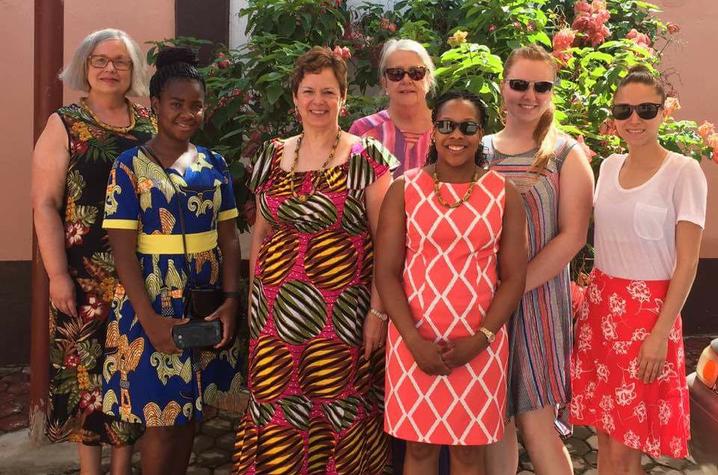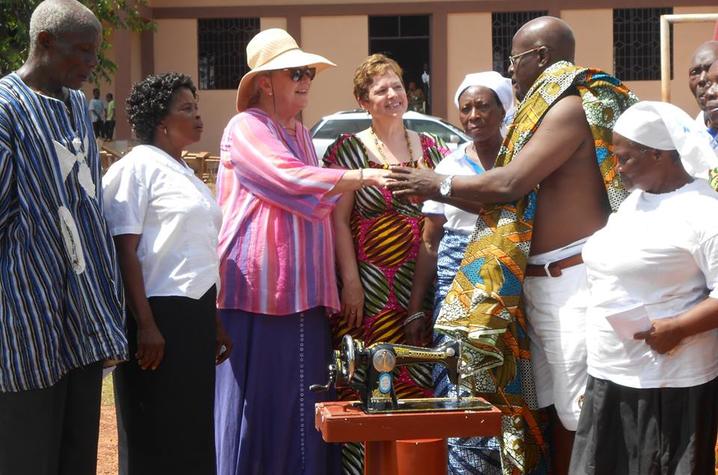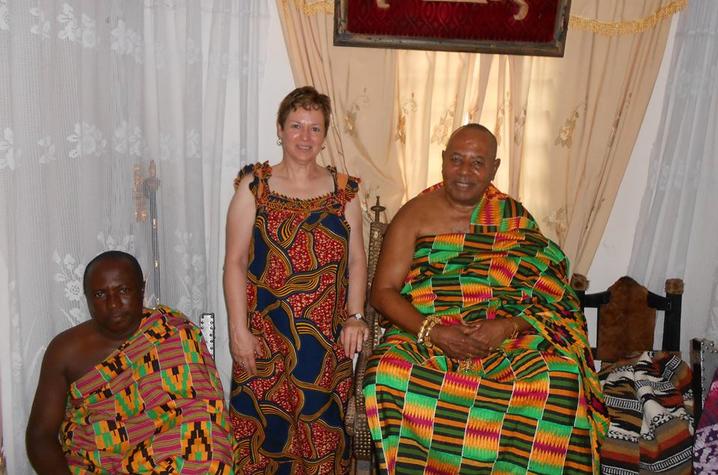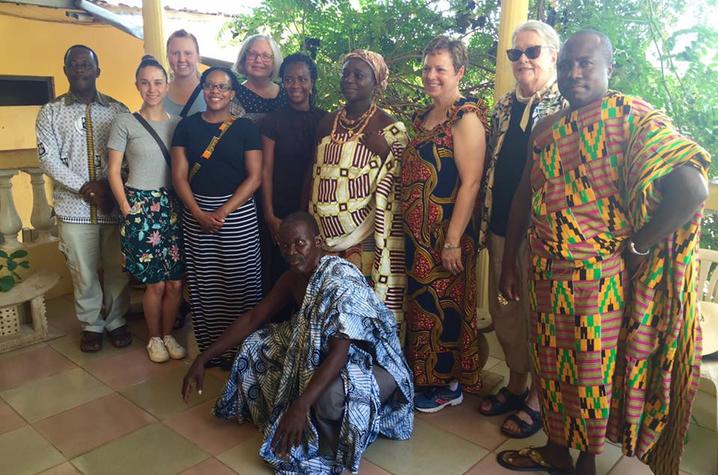UK School of HES Lends a Helping Hand in Ghana Outreach Program
LEXINGTON, Ky. (July 17, 2017) — A recent partnership between the University of Kentucky College of Agriculture, Food and Environment’s School of Human Environmental Sciences and the Kentucky Extension Homemakers Association (KEHA) is benefiting two villages in Ghana by fulfilling their wish for new sewing machines.
Led by Kim Spillman, associate professor in the Department of Retailing and Tourism Management, this partnership is part of an ongoing initiative in Ghana.
Since 2010, Spillman has been engaged in research and outreach with sewing cooperatives through four trips to Ghana. During her first two trips, the villages expressed their need for electric sewing machines. On her third visit, the residents reminded her of their wish. Spillman partnered with the KEHA, working with International Chair Leoni Mundelius, to make these villages’ dream a reality.
Launched in the fall of 2016, KEHA’s sewing and textile outreach project for Ghana yielded tote bags, shirts, sewing kits and a total of $2,650 for the purchase of 16 sewing machines. The villages of Aseseeso and Adjeikrom each received eight machines. The sewing machines not only provide the villages the ability to create school uniforms, but also provide jobs to young girls who have completed school. The girls were given machines and sewing kits and received training to use them.
“Working with KEHA members was an amazing experience,” Spillman said. “Members are thoughtful and generous. They trusted me with funds and sewing kits to make this happen in two extremely poor villages. This can be the beginning of empowering women in these villages and raising the economic level of the villages as well. KEHA is an amazing organization. The members are generous, smart and can move mountains! I feel blessed to be associated with such a group.”
The sewing outreach was part of a broader Study Abroad experience for three students, three faculty members and KEHA representative Marcia Rasner, a member in Monroe County. While in Ghana, the delegation met with the chief of each village, toured local and national monuments and parks, took a cooking class, printed designs on fabrics and interacted with the residents. They attended three lectures at the University of Ghana about the school feeding programs, women’s programs, and farming. New to the study tour itinerary this year was a visit to the U.S. Embassy in Ghana, and a discussion with the political section chief and regional agricultural counselor who expressed interest in both the school feeding program and sewing project.
The study tour itinerary was service based. Participants experienced the culture of the Ghanaian villages while also gaining a rich knowledge of the challenges and opportunities in Ghana.








